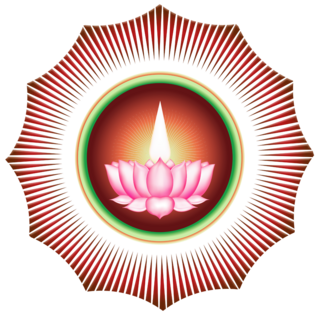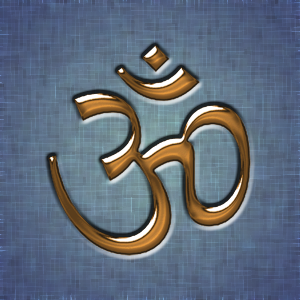In the field of comparative religion, many scholars, academics, religious figures have looked at the relationships between Hinduism and other religions.

Ayyavazhi is a henotheistic belief that originated in South India. It is cited as an independent monistic religion by several newspapers, government reports, journals, and academic researchers. In Indian censuses, however, the majority of its followers declare themselves as Hindus. Thus, Ayyavazhi is also considered a Hindu denomination. Officially (legally), it exists within Hinduism as a Hindu denomination.

Nizhal Thangal also called Inai Thangals) are secondary worship places of the Ayyavazhi, often smaller in size compared to Pathis, built per the instructions of Akilattirattu Ammanai. Cleanliness is strictly enforced.
Netu Yukam, according to Ayyavazhi mythology, was a time when another fragment of Kroni was created into two wicked persons called Thillaimallalan and Mallosivahanan. They ruled over the people most wickedly by extracting Uliyam and Iraikal (taxes) from them. When it became unbearable, the Thevarkal complained to Isvaran, who in turn commissioned Lord Narayana to carry out the destruction of the wicked rulers, which he later did.
According to the Ayyavazhi sect of hinduism, Thretha Yukam was the fifth of the Eight Yukams. In this aeon Isvaran created the fourth piece of the primordial Kroni as a Ten-headed mighty warrior, as per the request of Mayon, naming him as Ravanan, with ten heads as ten mountains.
Avathara Pathi is a phrase in Tamil which represents 'The place where God incarnates'. The Avathara Pathi is one among the holy places of Ayyavazhi,(see: Ayyavazhi Holy Sites) which had been erected in Thiruchendur. Avathara Pathi is located half-a-mile south to the Murugan Temple, at the sea-shore."Makara Theertham" is located here.

The Ayya Vaikunda Avataram or Vaikunda Jayanthi is a festival celebrated by the followers of Ayyavazhi on the 20th day of the Tamil month of Masi, the date on which the Ayyavazhi followers believe that Lord Narayana himself incarnated as Vaikundar during an encounter with a deity Goddess Lakshmi, he was beget inside the sea and arose from the sea of Thiruchendur on Kollam Year 1008 at 20th day of Tamil Month Masi. He took the human form as Narayana Pantaram at Tharuvaiyur near seashore to destroy the evil spirit of Kali and transform the Kaliyukam into Dharma Yukam.

The following outline is provided as an overview and topic guide to Ayyavazhi:

Thirukkalyana Ekanai was an important part in Akilathirattu Ammanai the religious book of Ayyavazhi, in which Lord Vaikundar unified all the atmans (souls) of this universe into Himself.

Ekam is the Sanskrit for "one, single, solitary", as a noun meaning "unity". In Ayyavazhi and Hinduism, it refers to a concept of monism akin to that of Brahman in Advaita philosophy and Smarta theology.

Ayyavazhi theology is the theology of a South Indian religious Faith and officially a sect of Hinduism known as Ayyavazhi. Several fundamental theological beliefs distinguish the Ayyavazhi tradition from Hinduism.

Ayyavazhi and Hinduism are two belief systems in India. Although Ayyavazhi continues to officially exist within Hinduism and is considered by some observers to be a Hindu denomination,some members of the religion claim that it is independent. The most notable distinction between Hinduism and Ayyavazhi is their different approaches to the concepts of good, evil and dharma.
Ayyavazhi, a belief system originating from South India, is mentioned in a number of reports by Christian missionaries in the 19th century. In some of these reports, it is claimed that Ayyavazhi is an anti-Christian religious phenomenon. The rapid growth of the London Missionary Society is heavily challenged by Ayyavazhi in Thiruvithancore, which is the most succeeded venue of LMS in India and revealed in certain reports.

The Ayyavazhi symbolism deals with the symbols which are used in or used to represent Ayyavazhi. Though Akilam the scripture of Ayyavazhi does not point out any symbol directly, there are a few symbols which are used for representing Ayyavazhi which came into practice gradually.

The History of Ayyavazhi traces the religious history of Ayyavazhi, a belief-system originated in the mid-19th century in Southern India. Ayyavazhi came to be noticed by the large number of people gathering to worship Ayya Vaikundar in the middle of the 19th century. The majority of the followers of Ayyavazhi were from marginalised and poor sections of society.

An Ayyavazhi wedding is the wedding custom within the Ayyavazhi belief system of South India. Usually Dharmagharttas, Panividaiyalars from Thangals or an older person experienced in Ayyavazhi assumes a role as a Guru and is seated in the Manvarai for leading the wedding ceremony.

The ethics of Ayyavazhi are found scattered throughout the primary scripture, Akilathirattu Ammanai. They are also integrated with the meta-narrative mythography. However, regarding ethics, Arul Nool is considered as an accumulation and prophecy of the core concepts found in Akilathirattu. In Akilathirattu, the ethical abstracts are pointed out as "told by God" at several places at different situations to lesser god-heads, devas, saints etc. when asked by them.

Shamanism is in practice in Ayyavazhi right from the period of Lord Vaikundar. At present certain people who are considered to be posed by the divine power use to perform shamanism in many Ayyavazhi worship centers. Though a whole acceptance from the followers in not there for this practise, several followers accept this. They claim that this practise was based on quotes on scriptures such as "to convey certain messages to the ordinary folk." Some also believe that through the words of these possessed persons one could be able to know what God tells about him or herself or their activities.

This etymological topic deals with the origin, regeneration and evolution of various names by which Ayyavazhi is referred or identified throughout the period of Ayyavazhi history. Though the name 'Ayyavazhi' is commonly used and the most accepted term to represent Ayyavazhi there are other terms too which are used to refer it.

